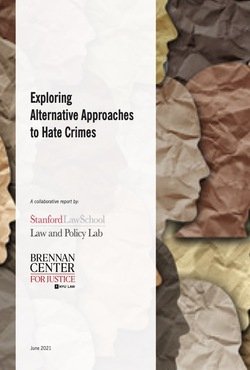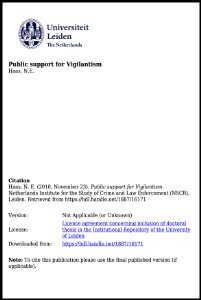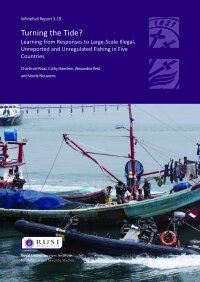By Chandra Childers
Summary: Southern politicians claim that “business-friendly” policies lead to an abundance of jobs and economic prosperity for all Southerners. The data actually show a grim economic reality.
Key findings
The share of prime-age workers (ages 25–54) who have a job is lower than the national average in most Southern states.
Median earnings in nine Southern states are among the lowest in the nation, even after adjusting for lower cost of living in the South.
Poverty rates in most Southern states are above the national average. In Louisiana and Mississippi, nearly 1 in 5 residents live in poverty.
The child poverty rate in the South is 20.9%—higher than in any other region.
These statistics reflect an anti-worker economic model whose signature policies are low wages, low taxes, few regulations on businesses, few labor protections, a weak safety net, and vicious opposition to unions.
Why this matters
A long history of anti-worker policies in the South—rooted in a racist agenda—has had devastating consequences for its residents. Business interests and the wealthy have stoked racial divisions to maintain power and ensure access to cheap labor—at the expense of working people.
How to fix it
We must begin to reverse 150 years of anti-worker policymaking in the South—starting with raising minimum wages and protecting workers’ right to organize. We also need to enforce appropriate regulations on business practices, reform a broken tax structure, and strengthen the safety net for Southerners.
The Impacts of Implicit Bias Awareness Training in the NYPD
By Robert E. Worden, Sarah J. McLean, Robin S. Engel, Hannah Cochran, Nicholas Corsaro, Danielle Reynolds ,Cynthia J. Najdowski, Gabrielle T. Isaza
In February of 2018, the New York City Police Department (NYPD) began inservice training on implicit bias for its 36,000 sworn personnel, using the Fair and Impartial Policing (FIP) curriculum. A team of researchers from the John Finn Institute for Public Safety and the IACP/UC Center for Police Research and Policy partnered with the NYPD to conduct evaluation research on the impacts of the training. The evaluation concentrated on the effects of the training among patrol officers assigned to commands in the Patrol Services Bureau, Transit Bureau, and Housing Bureau, whose training commenced in May, 2018 and concluded in April, 2019. We assessed the immediate effects of the training on officers’ beliefs and attitudes: their knowledge about the science of implicit bias and the potential implications for policing, and their attitudes about the salience of bias and discrimination as a social problem, and the importance of policing without prejudice. A survey was administered on the day of FIP training, either prior to or following the training on alternating days. We drew inferences about immediate training effects from the differences in pre- and post-training survey responses. The effect of the training on officers’ knowledge about implicit bias was of moderate magnitude, though many officers’ comprehension of the science of bias was limited. The effects of the training on officers’ attitudes toward discrimination, and their motivation to act without prejudice, were fairly small, though prior to the training, most officers considered discrimination a social problem and felt individually motivated to act without bias. Officers regarded the training as beneficial: 70 percent reportedly gained a better understanding of implicit bias and more than two-thirds reportedly learned new strategies and skills that they expected to apply to their work. Nearly half rated the likelihood of using all five biasmanagement strategies as either a 6 or 7 on a 7-point scale anchored at 7 as ‘very likely.’ We conducted a follow-up survey about officers’ beliefs and attitudes and their actual utilization of FIP strategies, which was administered from June through August of 2019, ranging from 2 to 13 months following the training. Asked whether they attempted “to apply the FIP training in your duties over the last month,” 42 percent said they had not, 31 percent said they attempted to use the bias-management strategies sometimes, and 27 percent said they attempted using them frequently. Comparing the follow-up survey responses to those on the days of training, we also detected some decay in the immediate effects of the training on officers’ comprehension of the science of implicit bias. The impact of police training is likely to be greater when it is supported by other organizational forces, of which immediate supervisors may be the most important. We surveyed sergeants post-training. We found that most sergeants view monitoring for bias as one of their responsibilities, and that they are willing to intervene as needed with individual officers. One-quarter reported that they had intervened with an officer whose performance warranted intervention. Slightly more than half of the sergeants reportedly address issues of implicit bias during roll calls, thereby reinforcing the training. Insofar as officers’ unconscious biases may influence their enforcement decisions, and to the extent that officers apply their training in FIP strategies to manage their unconscious biases, we hypothesized that the training would lead to reductions in racial/ethnic disparities in enforcement actions, including stops, frisks, searches, arrests, summonses, and uses of force. We examined enforcement disparities at multiple levels of analysis – at the aggregate level of commands and the level of individual enforcement events. To isolate the effect of the training from other factors, the NYPD adhered to a protocol for a randomized controlled trial that provided for grouping commands into clusters scheduled for training by random assignment. This experimental control was supplemented by statistical controls in the analytical models. Overall, we found insufficient evidence to conclude that racial and ethnic disparities in police enforcement actions were reduced as a result of the training. It is very difficult to isolate the effects of the training from other forces that produce disparate enforcement outcomes. Training impacts might be a signal that is easily lost in the noise of everyday police work. Estimating the effect of a single training curriculum on officers’ decisions to invoke the law or otherwise exercise police authority may well be akin to finding the proverbial needle in a haystack. Furthermore, it has been presumed but not demonstrated that enforcement disparities stem, at least in part, from officers’ implicit biases. Though research has shown that police officers, like the general public, hold unconscious biases, no scientific evidence directly links officers’ implicit bias with enforcement disparities. To the contrary, the evidence – which is thin, to be sure – suggests that officers practice controlled responses even without implicit bias training. If disparities stem from forces other than implicit bias, then even a welldesigned training that is flawlessly delivered cannot be expected to alter patterns of police enforcement behavior.
Albany, NY: John F. Finn Institute for Public Safety, Inc , 2020. 188p.














